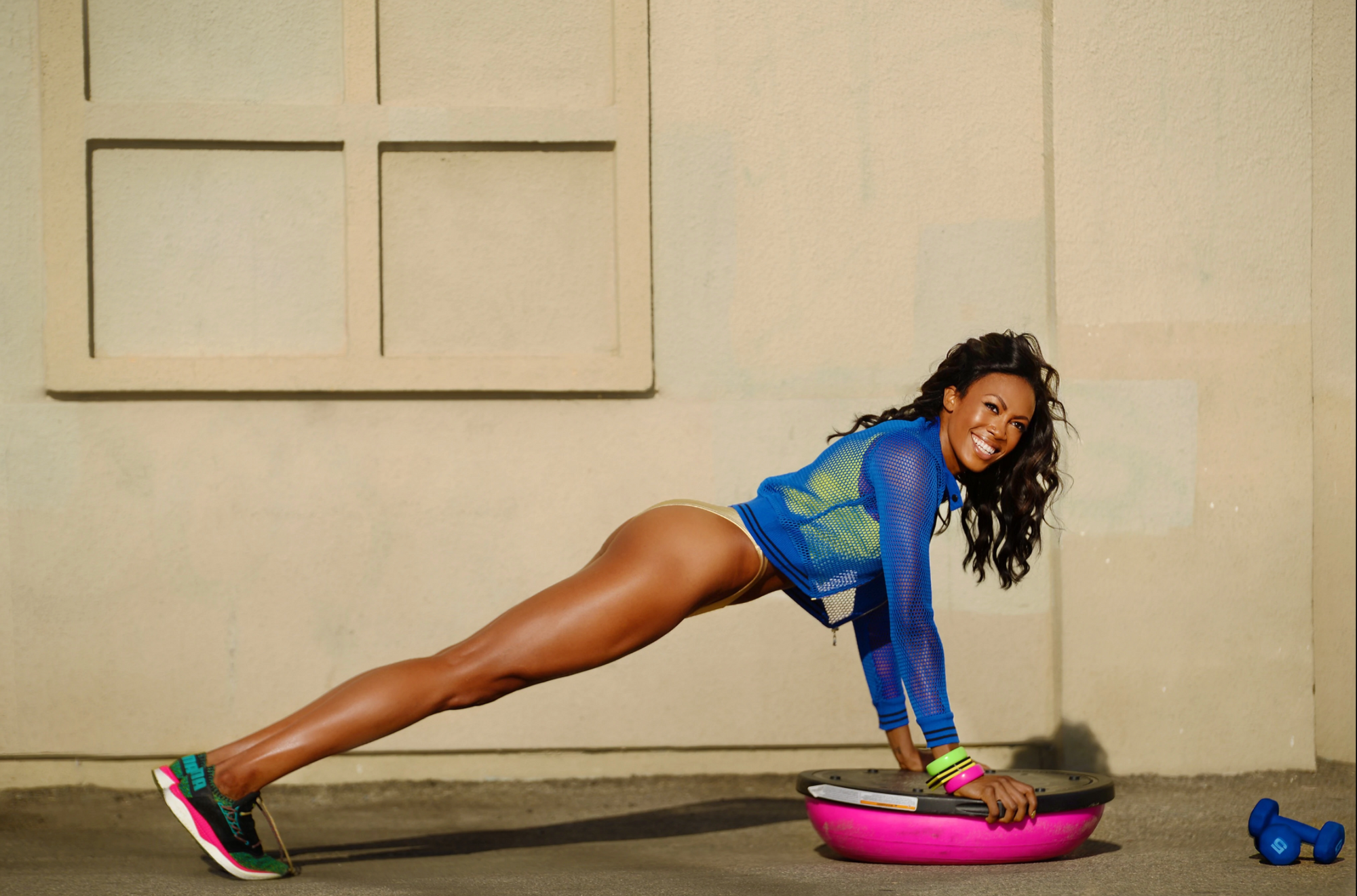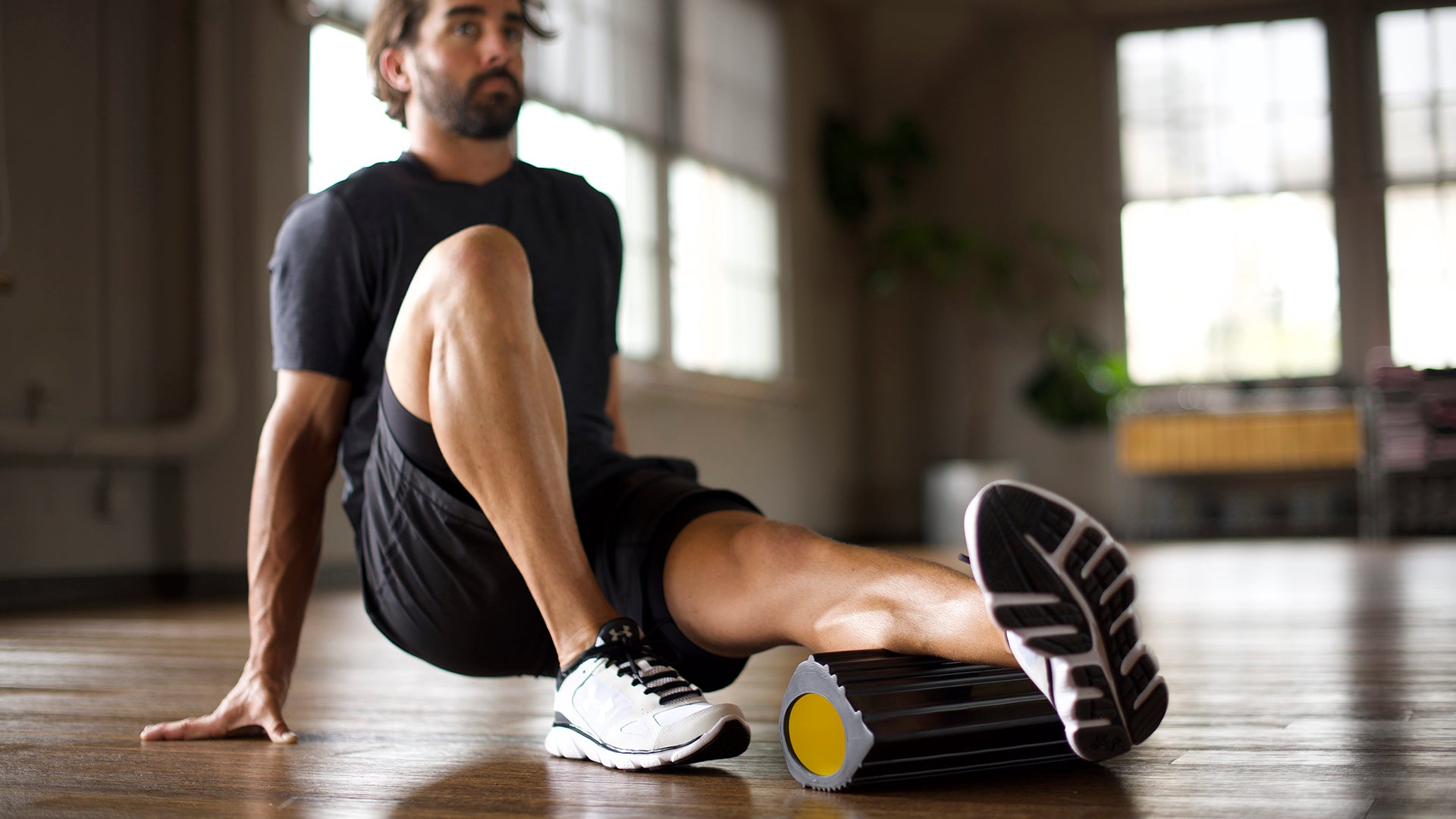Rustin Hughes has been through more life changes at 45 than most people will see in a lifetime. Today, Hughes is known around Fort Collins, Colo. and beyond as the founder and chief motivator at B-Bold, a program designed to train adaptive athletes, including many veterans. But Hughes’s path has been anything but direct.
Hughes entered the Army straight out of high school, and started his military career as an M1A1 armor crewman. Following his Army tenure, he fell in love, and married his wife, Brandy. But, after years of battling brain cancer, Brandy passed in 2012. Two years later, in 2014, Hughes went to the hospital suffering from leg pain. Doctors determined that Hughes had a blood clot in his femoral artery. His leg would have to go.
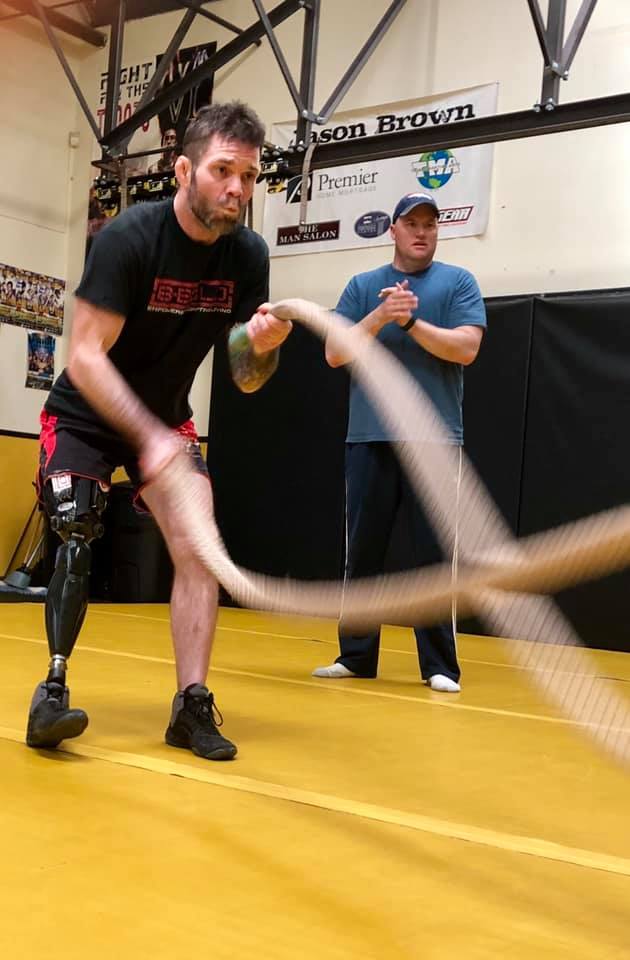
At the time of his surgery, Hughes had been competing in MMA, and using the TRX Suspension Trainer both as part of his conditioning work and as a TRX instructor. Hughes knew the Suspension Trainer could help him prepare for life after his surgery, and began focusing on single-leg exercises to improve his stability and balance.
As he developed a program for himself, he realized that the same type of training could help other amputees. “At the time I had just lost my wife, and then I went through a below-the-knee amputation and then an above-the-knee amputation. I was at a crossroads. I was pissed off, and I could not believe this was happening,” he says. But Hughes decided to turn his tragedies into something positive.
Post-surgery, Hughes began coaching with an adaptive training group called No Barriers, and hosted his first adaptive TRX program with the group. “What was really cool is I had people in wheelchairs, I had amputees, I had elderly people. I had a guy that was blind. You name it, we had that ability that was there,” he recalls. “I didn't really know how I was going to adapt to all this stuff; it was just kind of like I was shooting from the hip on every single person, because regardless of if you're able bodied or not, you're adapting to something, in a sense. It's just figuring out how to adapt.”
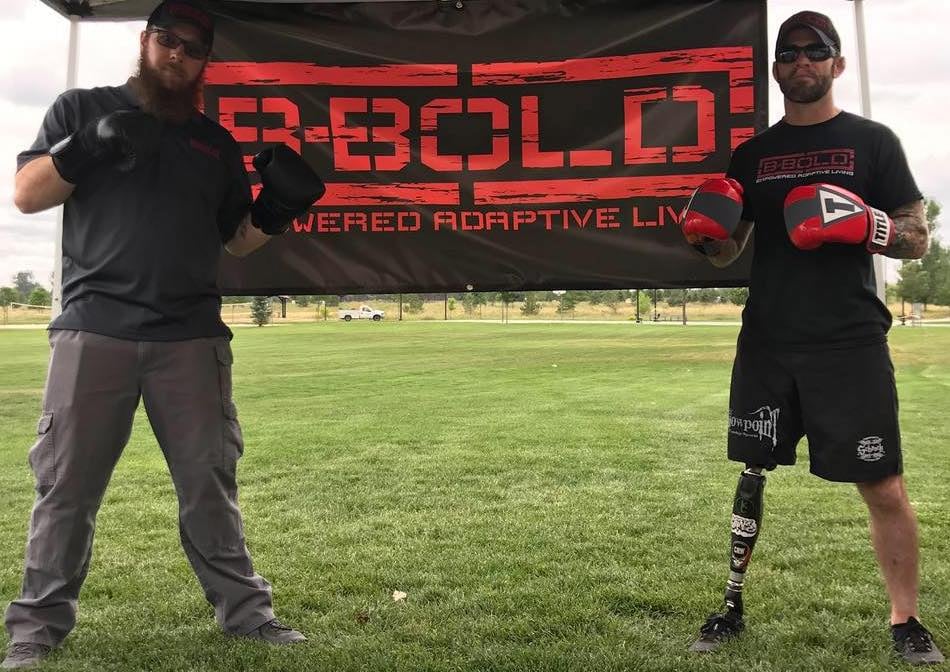
Out of that experience, he developed a plan for his own program, B-Bold, named in Brandy’s honor. (Hughes said Brandy’s grandfather used to tell her, “Be bold,” and Brandy had a personalized license plate that read “B-Bold” when she was in high school.) While B-Bold isn’t exclusively a veterans program, Hughes and his team work with a number of adaptive veterans in the region thanks to their outreach efforts with the local Veterans Affairs hospitals in Colorado. Through B-Bold, Hughes is helping people live active lives regardless of their physical or mental obstacles. Hughes credits TRX as a huge part of the B-Bold program because he can create Suspension Trainer workouts for every participant’s needs.
“We’ve all got stuff that we're all going through,” he said. “Mine is pretty visible. You can see mine, but you can't tell if the person is deaf by looking at him. You can't tell if a person has PTSD by looking at them.” At B-Bold, Hughes says participants celebrate their differences.
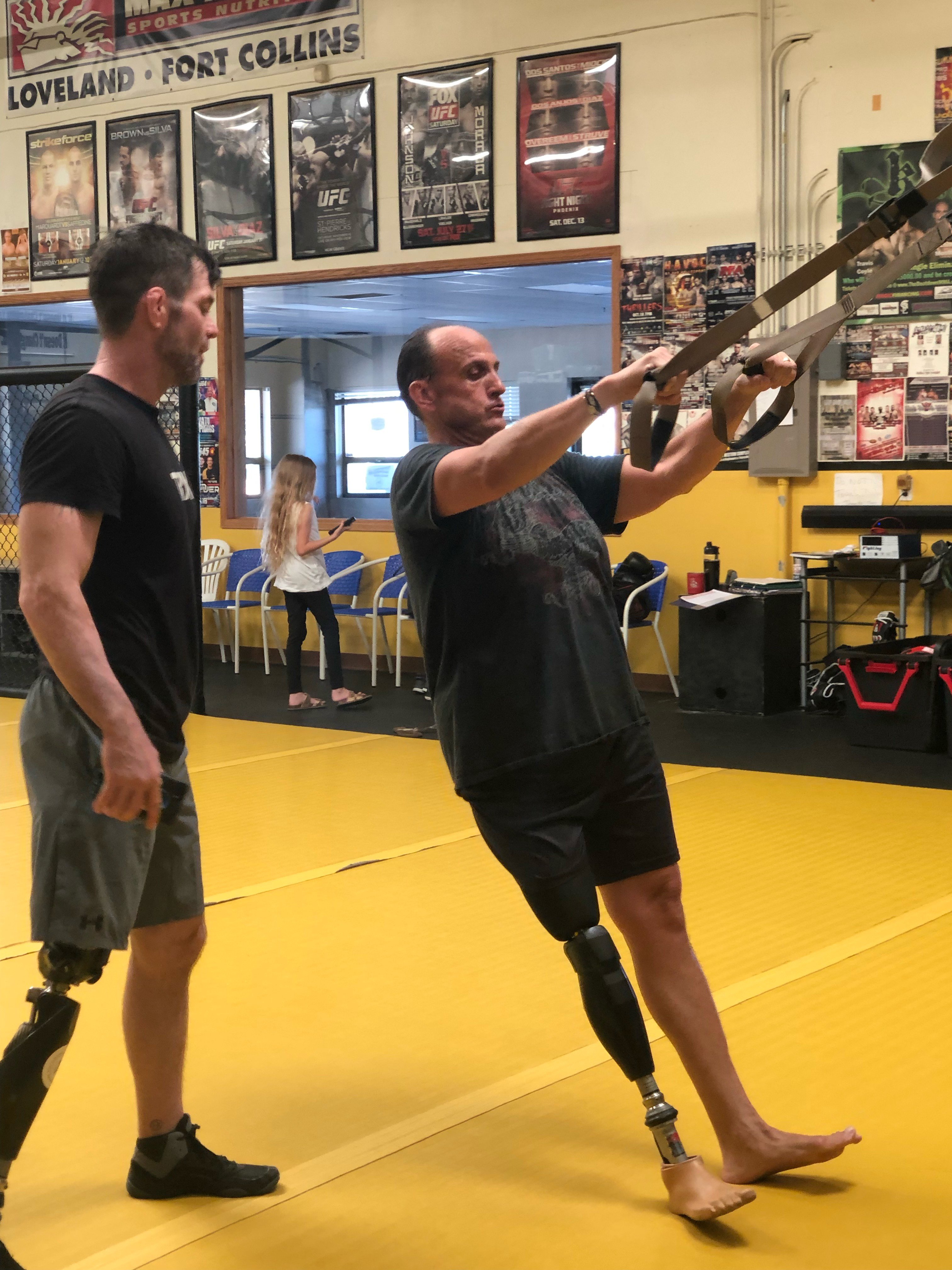
“There's just a lot of things that have happened because of this amputation, and I believe that I was more disabled when I had two leg than I do now. My disability was between my ears,” Hughes explains. “We're all perfectly imperfect. To embrace that and celebrate that, that's one thing that I'm trying to encourage people to do: Quit trying to hide that you're an amputee, or quit trying to hide these certain things. I think that if you're able to just be more honest with yourself about what is disabling you, then it's not really a disability anymore. It's another thing that we say; that my coach told me, ‘Take your disability and make it your ability. Take your disadvantages and make them your advantages.’”


